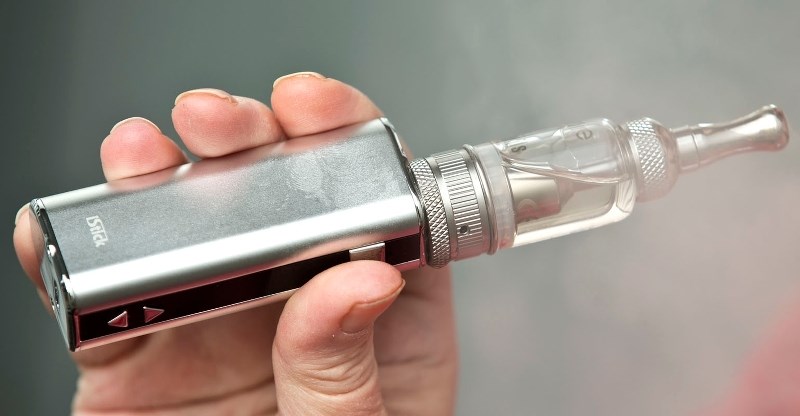When it comes to vaping and keeping your oral health in order, the jury is still out.
On the one side, the Canadian Dental Association (CDA) unequivocally holds strong in its position against all vaping consumption, just as it does with smoking tobacco and cannabis, using shisha or hookah pipes, chewing snuff.
It does this because vaping is so new that scientific research into the effects of using e-cigarettes and vape pens hasn’t come back with anything conclusive as yet.
“The long-term effects of vaping on one’s overall and oral health are not yet known. However, current research indicates that vaping damages cells and lowers certain enzymes that are important in maintaining tissue health and preventing cancer,” began Zelda Burt, the organization’s communications manager.
Any smoking or vaping, therefore, comes with “unacceptable risks.”
Vaping liquid consists of a carrier solvent, which is usually propylene glycol and/or glycerol (vegetable glycerin), with chemical-based flavours and nicotine typically added to the mix. In some respects, it starts off not much different from fog juice, the thick aerosolized artificial smog that gets used so much in films and nightclub settings for various dramatic effects.
Inhaling those aerosolized chemicals directly does lower salivary output over time, just as smoking cigarettes does.
Saliva is not only important in the digestive process but it also helps to counteract the effects of acid in food and drinks.
One vape shop owner says common sense should still prevail and basic dental hygiene should help cover your bases.
“My advice to my customers: brush your teeth every day just like you always did,” offered Thomas Kirsop, the proprietor behind both Alternatives & Options vape shops in Morinville and St. Albert.
“Because the reality is that ... propylene glycol may have something to do with teeth. I can't speak to that for sure. I'm not a dentist. The reality is, are you going to keep smoking cigarettes?”
Vaping, he added, has less than five per cent of the harm that smoking cigarettes does.
“Brush your teeth. That takes care of any exposure issues with your teeth. If you're doing a comparison between vaping and dental health, it’s probably a good idea to take a look at smoking and dental health as well.”
The CDA responded by noting some heavy smokers and vapers still acquire tooth decay even if they are brushing their teeth well. Burt urged vapers and smokers alike to speak directly with their dentists or doctors about impacts on their oral and overall health, and even to put a plan in place on how to quit.
Burt added there is also evidence to suggest vaping is increasingly a potential gateway to conventional cigarette smoking, especially in young people.
The CDA provided information stating vaping is not harmless to one’s health. It can increase an individual’s exposure to dangerous chemicals and lead to nicotine addiction, especially in children and youths. Nicotine also is known to cause concentration and memory problems and can alter brain development in teens.
And that’s not all.
“E-cigarettes are also known to increase the risk of seizure, stroke, tachycardia, disorientation, airway resistance, congestive heart failure and pneumonia,” Burt said, directing people to visit Health Canada’s website at www.canada.ca/en/health-canada to learn more.


